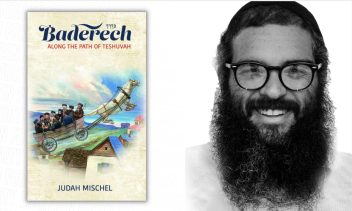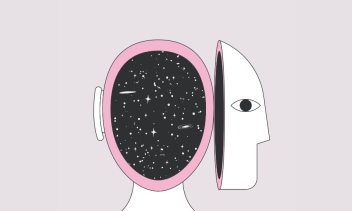American author Steven Pressfield knows what makes a compelling story, so he was taken aback when one producer repeatedly raised issues with his screenwriting of the villain. Frustrated, Pressfield finally asked his producer why.
“You’re having the villain change,” she told him. “The villain can’t change.”
Pressfield pushed back, asking why that was problematic.
His producer’s answer was simple: “Because if the villain changed, he’d be the hero.”
It’s striking to think about which ingredients are integral to building characters in books and films. What is wrong with the villain changing? Pressfield thought his producer’s response was ridiculous. Yet, after giving it more thought, he actually agreed with her:
The Alien doesn’t change. The shark in Jaws doesn’t change. The Terminator in The Terminator doesn’t change. And when he does in the sequels … OMG, he becomes the hero (or co-hero)—and we have new Terminators (who don’t change) who now become the villains.
I realized I had to start thinking more deeply about this.
Indeed external villains don’t change. Every antagonist in a James Bond movie. Every super-villain lining up against Batman, Superman, Spiderman, Iron Man, the Fantastic Four, the X-Men. Every force-of-nature villain (volcanoes, tsunamis, Mayan-predicted worldwide destruction, asteroids-crashing-into-Earth, Tripods invading New Jersey, global climate catastrophes). None of these is capable of change.
Change is a hero’s identity: struggle, challenge, growth, triumph, transformation. Heroes we love are heroes who change. As individuals, our change blossoms in different seasons and different forms, but it is that plurality of personal transformation that makes it so meaningful. 18Forty’s guests in this series had no shortage of words for their own stories of teshuva and change.
With 78.2 million YouTube views, Alex Clare’s “Too Close” is a song we’re all familiar with. Less known, however, is his story surrounding that hit and his return to Judaism. Alex spoke with 18Forty about that journey and his story of change. Describing the world he lived in, he said:
I was part of a scene. Yeah. I mean, it was a very diverse scene. On one hand you had the electronic music guys who come from Southeast London where I come from. And then I moved to North London to Camden Town when I was 18 years old. And I was associating with… The amount of people in that scene at that time who went on to win Grammys and become billboard artists, it’s ridiculous. Everyone from Florence and the Machine, Mumford & Sons, Amy Winehouse.
On the surface, it looked like a dream—every musician’s fantasy come to reality. For Alex, he awoke to a realization that things were not as they appeared, and he wanted out.
Alex Clare:
Like most baalei teshuva, if you find me a baal teshuva, a returnee to Judaism, who hasn’t had some sort of catastrophic or traumatic event, I’m always very surprised. For me, in my early twenties, I went through a real traumatic experience in that world of music with the people I was involved with, and it was a very negative environment to be in.
…
David Bashevkin:
Can you explain a little bit what you mean by that? You don’t have to share.
Alex Clare:
Drugs, alcohol, hedonism. People who are thrust into the path of celebrity and fame. A whole gamut of my social group were, on the outside, exceptionally successful people, but on the inside, really suffering and going through a lot of pain. And being in that environment, a really toxic environment for one or another, a better expression. I think being in that world really started to shake up my perspective on what I wanted out of life. And I wanted to have a good life and have a set of values, have a spiritual existence of some sort. And I found that in my early twenties very much in Judaism, and very much in Hasidic thought specifically. It really helped to shape me and give me a foundation, a basis of spirituality, or a spiritual framework where I could grow.
When life was no longer working, when something felt off, when he knew that this was not the life he wanted, Alex made a difficult decision to leave it behind. Though, as he told us, it didn’t happen all at once.
It was very gradual. I’m not such an extreme person, and it was a very, very gradual process. I never was completely divorced from the scene. Even when I started keeping Shabbat, I was still very much involved in the scene, I just stopped playing Friday nights and Saturday days. The nexus event where there started to be some level of conflict between the two worlds was actually later, after I signed my first major record deal. I was keeping Shabbat and I was growing in my religious observance, let’s say. And it was really during that time period when I’d signed my first major record deal, and I’d already made my first album, that’s when the two worlds really collided, when the two worlds became fairly incongruous together.
“Too Close” came onto the international music scene when Alex had already left the music industry. In fact, he was already in a Jerusalem yeshiva when its feature in a Microsoft ad shot it to fame. Eventually, Alex took that opportunity to reacquaint himself with the industry—but on new terms.
Alex Clare:
I had a few realizations. One is that I think I had to be happy to let that moment go. It’s only when I was no longer attached to the concept of being a famous musician or being even a successful musician … I think that’s really when the siyata dishmaya, the spiritual benefits and the physical benefits really came about, because I was willing to let go of it. I think I saw that, and then once the opportunity came to have a financially successful career in music, to be a person who could actually make a living from it, that was a big eye opener, a big eye opener. And I’ve always been very close to the Chabad school of Hasidic thought, which definitely focuses much more on taking things of the world, of a seemingly profane nature, and sanctifying them.
So for me, to be a person like me who would be involved in the music industry, and to go back into it with that in mind, was a good outlook. In the beginning, I think that it made the decision quite easy. And when I spoke through with my mentors at the time, they were all very supportive, and were like, “You got to do it. You got to do it. It’s very obvious that this is happening now for a reason. And if it’s an opportunity that’s going to disappear, you have to do it.”
Alex’s story was only getting started during that decision in 2012. 10 years later, he is still an artist. His story of teshuva changed him, his Judaism, and his musical aspirations.
18Forty also spoke with another public figure, this one in the Jewish world: Rav Judah Mischel. Executive director of Camp HASC and founder of Tzama Nafshi, Rav Judah inspires, excites, and empowers Jews of all ages to revitalize their own religious journeys. What, though, does that look like for himself?
Rav Judah Mischel:
Every single area of life. I feel like if I’m living the practice that I aspire to live with, then it’s changing all the time. Meaning, let’s take something that we’ve spoken about many times, Shabbos, the Shabbos table. Our Shabbos table, I look forward to it all week. I love it. Our kids look forward to it. We have a really fun and comfortable, beautiful Shabbos table that looks very different than it did just a couple of years ago.
David Bashevkin:
How so?
Rav Judah Mischel:
How so? Our kids are older. The conversations, we have some older kids and some younger kids. There is definitely some entertainment for everybody, but there’s a certain attention that the younger kids require for engagement. There’s a certain level of conversation and an interest that has to be maintained for our daughters who are teenage girls.
And those are two very different things. And the truth is, what speaks to me now religiously and spiritually is different than it did than. I used to want to sit at the table and sing for hours. I don’t know. Sometimes I’m not always in the mood to sing for hours. There was a time we recently speaking recently reminiscing with Ora, when we got married, I wore a long coat, I wore a bekeshe on Shabbos, I wore a hat. And there was the two of us, and I would sit, or when we’d go to my parents, my in-laws, I’d sit and say all the prayers that precede Kiddush, and I’d sing azamer bishvachin after Kiddush in the traditional Breslov tune. And I really, at this point, retroactively am deeply grateful to my in-laws for not… Ora would sit there like a yalda tova, like a good wife, and sit there and smile.
And it really felt right. And it felt comfortable and exciting and meaningful and real. I sang that azamer bishvachin every Friday night for years, throughout my time at YU, from the first time I learned it in Beitar in my shana alef, I was 18 years old. I went with a couple of friends to Beitar, and it was our first real exposure to Rebbe Nachman’s light. I sang that niggun on Friday night for years. I had a hardcover bencher, or a sefer that I carried with me, the Or HaShabbos, for years. And we were married, we lived in Elizabeth for years. And then we came there to Eretz Yisrael, you probably were at our table those early years. In Reishit, we would sit there with the guys and teach them azamer bishvachin. I had tape that I learned it from. And after singing the niggun for 10 years with the bekeshe, put on some weight, didn’t fit so well, little shvitzy in Israel with the hat, and our kids are in a school system where, not so much the code of dress.
For Rav Judah, some of his change meant removing, not adding, and he did so with the clarity and confidence that it was the right decision for him, that it was the right step in his religious journey. Less meant more. That may be confusing for students who expect their mentors, their rabbis, to live a certain way. That confusion, however, is misguided.
Rav Judah Mischel:
Hashem gave me a life and gave me a family, and that’s my achrayus. And [if] the students, or the people … want to come and join and it works and it’s great, so that’s great. What they’ll see is that we’re trying, and that we’re doing our best, and we’re trying to figure this out and enjoy our Yiddishkeit, and vechay bahem, and live it for real along the way. Living it according to somebody else’s script, living it, trying to fill somebody else’s shoes and do it the way somebody else did it, it just means I’m not going to have it their way, and I’m not going to have it my way. So, what did we accomplish over here? And teshuva is returning to a baseline of when we say revealing self, and we use all these terminology, what exactly does that mean? It means undoing all the external pressure of having to perform some religious act or rite for other people, even if it’s intended to guide them. So I’d rather just do what I’m doing, and if there’s someone there and they see that and learn from that, that’s great. But in the end of the day, we’re responsible for ourselves. To be responsible ourselves we have to do our thing. And all we can do is try our best.
Rav Judah and Alex opened their hearts bear to show the realities of teshuva, its messiness and complexity, and its sacrifice. The path of teshuva, of change, may not be simple, but it is the essence of the story.








